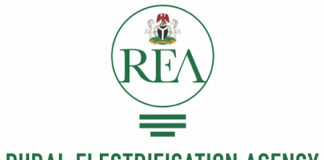Director General of National Pension Commission (PenCom), Mrs. Chinelo Anohu-Amazu, yesterday disclosed that the value of pension assets as at July 2016, stood at N5.8 trillion while the portfolio value of Retirement Savings Account (RSA) is N3,882.58 billion.
The DG who spoke through the Head, Investment Supervision Department of PenCom, Mr. Ehimeme Ohioma, at a forum organised by Finance Correspondents Association of Nigeria (FICAN) in Abuja, also revealed that the average monthly inflow of new contributions is N41 billion while the annual inflow of contributions is N492 billion.
Anohu-Amazu stated that the pension assets are the largest and only viable pool of long term capital in most economies, stressing that the pension fund investment in infrastructure remains a reasonable proposition given the good asset/liability match, as infrastructure projects are long term investments that match the long duration of pension liabilities.
She cited Ghana, Kenya, South Africa, India and Brazil where pension funds have effectively been deployed for infrastructure investment.
According to her, the Federal Government intends to use 20 per cent (N98.40 billion) of the N492 billion for housing, among other propositions.
“Nigeria has a large infrastructure deficit in all key sectors, largely due to population growth, demographic change and urbanisation, which have driven increased demand for infrastructure in Nigeria.
In 2016, the national budget significantly increased the allocation to capital expenditure, by up to 26.2 per cent of the budget, which amounted to N1.59 trillion. The Ministry of Finance (MoF) estimates an annual infrastructure need of N7.3 trillion.
Consequently, only 22% of the MoF’s estimated annual need for infrastructure can be accommodated by the 2016 budget. The regulation on investment of Pension Fund Assets issued by the National Pension Commission allows for investment in Alternative Asset Classes like infrastructure ‘bonds’ and ‘funds’, private equity funds, real estate/housing development.
Alternative assets are the only investment class with guaranteed returns, which are consistently above inflation rates,” she noted.
She said that Nigeria’s current infrastructure situation places it at a competitive disadvantage globally whereas the current stock of infrastructure is inadequate to support the present and future socio-economic needs of the country, including the current imperative to diversify the economy away from oil in the shortest possible time.
“Availability of long term financing is a critical factor; it is clear that private finance is needed to supplement government’s constrained financial resources. Pension funds are a potential source of private financing to help fund infrastructure in Nigeria.”
“The minimum requirements/criteria for pension fund investments in infrastructure, as stipulated in the Investment Regulation is very robust and provides adequate safeguard for pension fund assets,” she explained.
However, she warned that the proposed infrastructure projects should generate cash-flows to repay itself over time and bid/concession processes must be open and transparent.
According to her, investment in infrastructure is a “win-win” for Nigeria and its citizens, adding that if well applied, would improve the standard of living of citizens, create and sustain employment, promote entrepreneurship, enhance returns on pension fund investments and increase the pool of pension savings available for economic development.











